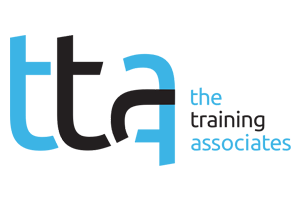The COVID-19 pandemic has created many new challenges for employees across industries, but it has also exacerbated difficulties that were preexistent. Multiple new research studies highlight one such challenge: being a working parent and, in particular, being a working mother.
McKinsey & Company and LeanIn.org’s annual “Women in the Workplace” report, released at the end of September, found that one in four women is considering “downshifting [her career] or leaving the workforce” — taking on fewer work hours or going part time, changing to a less demanding job, taking a temporary leave of absence, or leaving the workforce altogether.
A July study by Vyond found that 37% of women, compared to 29% of men, reported a decline in their work/life balance since the start of the pandemic. Perhaps relatedly, over one-quarter of survey respondents said that “having kids appear during video meetings” is a “[violation] of workplace etiquette.”
Data that Perceptyx released in September found that almost 55% of women, compared to 41% of men, report carrying “75 percent or more of the responsibility for children during the workday” — but women also report feeling “less understanding and flexibility from their managers than male caregivers.” Notably, the lack of support is likely not due to lowered productivity, as “female caregivers providing at least 75 percent of the care during the workday report less distraction and productivity loss than their male counterparts who provide less than 25 percent of the childcare per day.”
Deloitte released a report last week that found, among other insights, that “nearly 82% of women surveyed said their lives have been negatively disrupted by the pandemic,” and “nearly 70% of women who have experienced these disruptions are concerned their career growth may be limited as a result.” And, while 32% of women said they planned to stay with their employer for two to five years and 30% for more than five years, three in five women “question whether they want to progress when considering what they perceive is required to move up in their organizations at the current time.”
Finally, WerkLabs, the research division of The Mom Project, released a report last month that went a step further by highlighting the impact what it calls the “mom exodus” will have on the workforce. Among the findings are higher levels of productivity and a more positive work experience among female colleagues of mothers.
A recent Wall Street Journal article by Rick Wartzman and Kelly Tang of the KH Moon for a Functioning Society (part of the Drucker Institute) elaborates: “Companies in the highest quartile of each of … five categories have a far greater concentration of top women executives than do those businesses in the lower quartile.” Those categories were social responsibility, innovation, employee engagement and development, customer satisfaction, and financial strength.
In other words, the so-called “mom exodus” is a problem for both justice and business performance.
While making the workplace more supportive for working moms during and after the pandemic will take a cohesive approach from departments across the organization, one way training professionals can help is by implementing effective leadership training — in particular, by helping leaders develop their empathy.
Why Are Women Leaving?
The “Women in the Workplace” study identified several reasons women are considering “downshifting” their career or leaving the workforce: lack of flexibility, feeling that they need to be “always on,” housekeeping and caregiving burdens — and the worry that they are impacting how their performance is perceived, discomfort sharing their challenges with team members or managers, “feeling blindsided by decisions that affect their day-to-day work,” and “feeling unable to bring their whole self to work.”
Perceptyx’s research pointed to the impact an unsupportive manager has on a woman’s likelihood to leave: While one-third of female caregivers said “they would need to make a change to their current working arrangements in the next six months,” women with “understanding” managers were 17% less likely to say so.
The Role of the Empathetic Manager
In fact, while many organizations are offering benefits such as flex time and child care assistance, Perceptyx’s research found that most such benefits did not make an impact in organizational loyalty. What did make a difference for female caregivers was an empathetic manager.
“One-size-fits-all policies may be easier to implement for an organization,” says Emily Killham, client data researcher at Percepytx, “but they won’t necessarily help all, or even most, of the employees with their unique challenges, especially during these strange times.”
“People have a hard time putting themselves in other people’s shoes,” says Stacy Adams, head of marketing at Vyond. Employees and managers without children cannot really imagine what it’s like to juggle a full-time job with child care, and being unable to imagine it can lead to judgment. The dramatic changes the pandemic has wrought can also make it difficult to be understanding of others. Employees may see a colleague who used to promptly arrive at the office in an ironed dress, now showing up on a virtual call in a stained t-shirt with a crying toddler. “It’s an entirely different landscape, and it’s only natural for this to impact employee relationships.”
Working moms need “jobs with companies that understand what moms need in order to achieve success both at work and at home,” says Chandra Sanders, who manages The Mom Project’s RISE, a new initiative offering technology upskilling to women of color. “Leaders should lead with compassion and trust,” Sanders adds, to “offer flexibility for moms and truly understand that although [their] schedule may be nontraditional, [they are] able to manage [their] time and actually increase [their] effectiveness and productivity.” Indeed, 48% of women in Deloitte’s survey said “providing more flexible working options” would be “the most beneficial action(s) [their] organization could take” to support them right now.
Effective Empathy Training
The best way for managers to know what their employees need, says Killham, is to ask them — and then listen. To that end, “learning to ask great questions and really listen to the answers is the most important soft skill we can help our managers acquire.”
Similarly, says Adams, “being a kinder communicator through any correspondence goes a long way, and encouraging that attitude across the team is important in building a supportive work environment.” She believes organizations should develop “refresher trainings for managers on this kind of people-first leadership and empathetic communication.”
Adams also points out that the benefits of this training will extend beyond working moms and past the end of the pandemic, citing research by the Center for Creative Leadership that found “that managers who show more empathy toward direct reports are viewed as better performers by their bosses” and research from Michigan State University and the University of Florida that found that employees with an empathetic manager have a “better day-to-day work life from a psychological and physiological perspective.”
Adams recommends using scenario-based training to develop leaders’ empathetic communication skills. Video, for example, can present a scenario and then present discussion questions and action steps for managers to bring back to the workplace. “There is power in creating training content that employees can watch on their own time, especially if they’re in a visually dynamic format like video,” she adds.
“Training is only one part of the equation,” Adams says. “This has to be part of a larger ethos around empathy and flexibility. Having said that, training reinforces the behaviors and ideas that are hopefully coming from leadership communication and then provides a more specific pathway to achieving them for employees.”
We’re likely to be living in a pandemic for a while longer. Even as some schools open, many parents are still managing homeschooling or caregiving while working full time. As multiple studies show, working moms in particular are struggling — and their careers and well-being are at risk. It’s not a cure-all, but training managers to be more empathetic is a good first step in stemming the flow and supporting working moms (and all employees) now and through whatever comes next.










